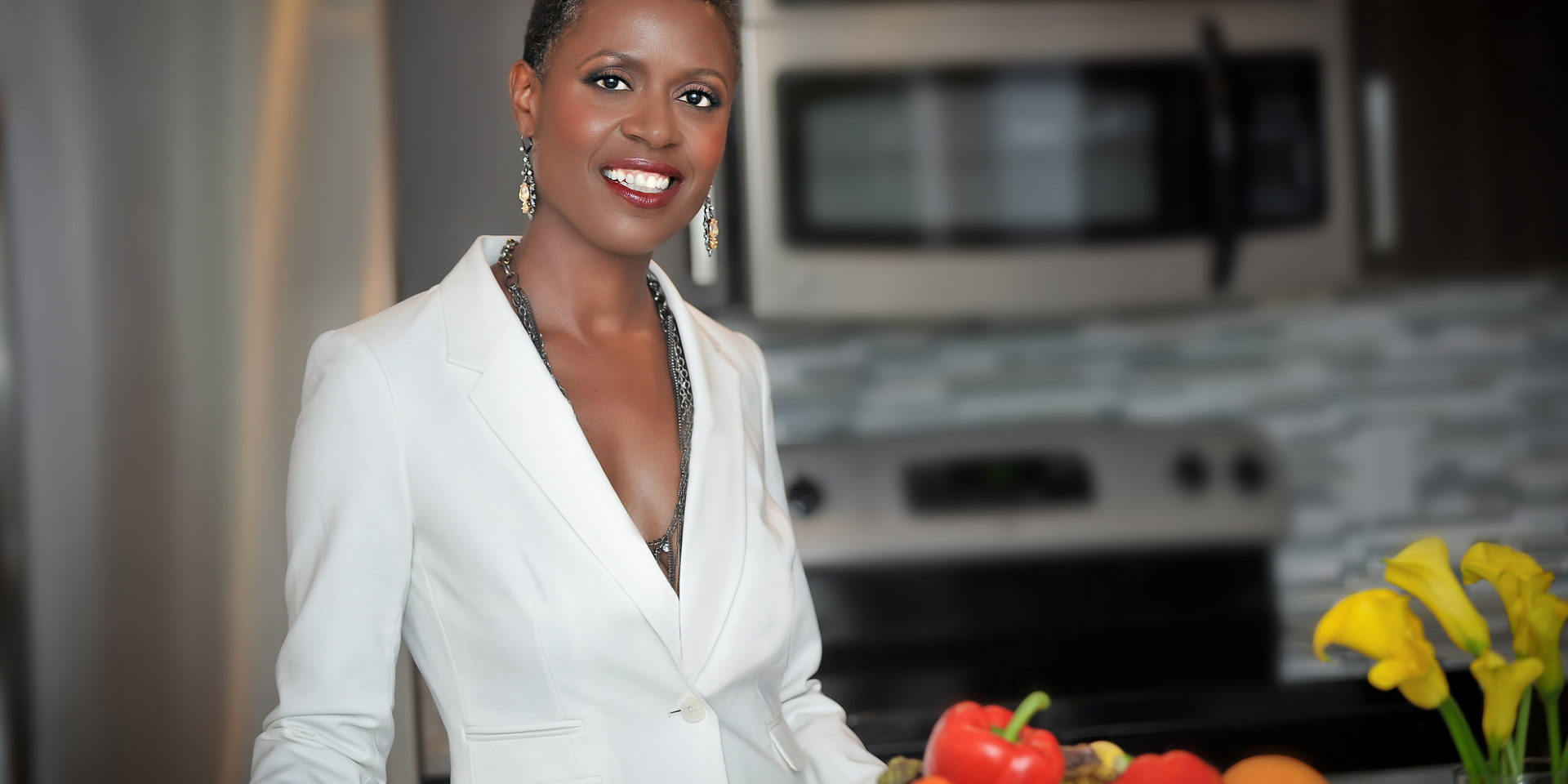All Black people do not eat chicken! In fact, there are more than one million Black vegans and vegetarians in the United States alone. One of them is Tracye McQuirter, MPH. I spoke with her about why she became a vegan and what people considering adopting the lifestyle can do to make the transition.

Tracye McQuirter, MPH – 30 year vegan
How long have you been vegan?
I’ve been vegan for about 30 years.
Why did you decide to become a vegan?
When I was a sophomore at Amherst College, our Black Student Union brought Dick Gregory to campus to talk about the political, economic, and social state of black America. Instead, he decided to talk about the plate of black America, and how unhealthfully most folks eat. This was in 1986, and we didn’t know that Gregory had become a nutrition guru. We only knew him as a Civil Rights icon and legendary comedian. So his talk was a surprise to all of us. And at that time, I was completely uninterested in healthy food.
But what grabbed me was when he started to trace—graphically—the path of a hamburger from a cow on a factory farm, through the slaughterhouse process, to a fast food restaurant, to a clogged artery, to a heart attack. I had never heard anything like that before.
Now at the time, I was going through a paradigm shift in my life. I was taking a lot of political science and African American studies classes, and I was learning about imperialism, racism, sexism, heterosexism, and classism for the first time or in new ways, and it was changing my awareness and sense of self. I had also decided to stop relaxing my hair and wear it naturally. And it was with this new consciousness that I listened to Dick Gregory’s lecture. So I was ready and open to questioning the way I ate, too.
So, after Dick Gregory’s lecture, I spent a few months reading everything I could get my hands on about vegetarianism. I also discovered that there was a large and thriving community of black vegetarians and vegans in my hometown of Washington, DC, who had started the first all-vegan health food stores and cafes in the nation’s capital in the 1980s, many of them influenced by their involvement in the Civil Rights and Black Liberation Movements. I immersed myself in this community taking cooking classes, attending lectures, going grocery shopping, asking hundreds of questions, and getting mentored. So I learned how to be vegan from this community after I learned why to be vegan from Dick Gregory.
Have you gotten your family on board? If so, who and how did you convince them?
During that summer after Dick Gregory’s lecture when I was reading everything I could about vegetarianism, my mother and my middle sister read the same books and we all decided that we should go vegetarian and then we each became vegan a short time later, so it’s been about 30 years for each of us. And just to focus on my mother, in particular, she was 50 when she became a vegetarian, then later a vegan. That’s no small feat for a woman born and raised in South Carolina! And she just turned 80 this year and is in excellent health. She has no chronic diseases, she’s not overweight, she has no high blood pressure or high cholesterol, and she’s as sharp now as she’s always been. And she exercises six days a week, including aerobics, Pilates, and weight training. In fact, among her 13 siblings, of the ones who survived into their senior years, she’s the only one with no chronic disease issues. And both of her parents died of chronic diseases—I never met them. So by her vegan diet and regular exercise, she has completely changed that health paradigm. She’s a role model for our family and so many others!

Tracye’s mom on her 80th birthday
How has your health improved as a result of cutting animal products from your diet?
Before Dick Gregory’s lecture during my sophomore year in college, I had gained 25 pounds during my freshman year. So after I removed the animal products from my diet, the weight came off effortlessly. And I’ve been healthy ever since. My weight has remained the same these last 30 years and I’ve never had any chronic disease issues whatsoever. Also, being vegan led me to explore other natural self-care practices, like yoga and meditation.
Is the vegan lifestyle popular in the Black community?
African Americans are pioneers in the plant-based movement in this country, dating back to at least the early 1900s. Today, an estimated 1.4 million African Americans (3%) are vegans and vegetarians, and nearly 15 million African Americans (32%) always or sometimes eat meatless meals when eating out. We want more black folks to join us because African Americans have the most to gain from the health benefits of plant-based foods because we experience the highest rates of preventable, diet-related chronic diseases in the country. Studies show that eating a healthy plant-based diet, along with exercising at least 30 minutes a day, not smoking and not being obese, can cut your risk of disability and disease from chronic diseases by up to 90%. And of these, eating a healthy plant-based diet is the most beneficial.
What would you recommend for someone who is considering becoming a vegan, but don’t really know how to start?
I recommend our brand new, free, online African American Vegan Starter Guide, which can be downloaded at AfricanAmericanVeganStarterGuide.com. It features 40 pages of information and inspiration from a host of African American vegan experts on how to transition to a plant-based diet—along with scrumptious vegan recipes from renowned black vegan chefs. And it’s free! Our goal is to help empower folks to live longer, healthier, happier lives.


